Are you looking to expand your import-export business and connect with potential partners? Crafting the perfect inquiry letter can make all the difference in establishing fruitful relationships and securing profitable deals. In this article, we'll explore key elements to include in your letter, ensuring clarity and professionalism while conveying your enthusiasm for collaboration. Keep reading for valuable tips and a handy template to guide you through the process!

Business Introduction
Introducing a reputable import-export business requires clear communication of its operations and values. The company, Global Trade Solutions, focuses on facilitating trade between diverse markets across Asia and Europe. Established in 2010, this enterprise has successfully navigated international regulations, ensuring compliance with customs in countries like Germany and China. Specializing in sourcing high-quality goods--such as electronics, textiles, and agricultural products--Global Trade Solutions has fostered partnerships with trusted suppliers and manufacturers. The company prides itself on its commitment to ethical business practices, sustainability initiatives, and dedication to customer satisfaction. Through logistics management and market analysis, Global Trade Solutions aims to bridge supply and demand, providing clients with efficient and reliable trading solutions.
Inquiry Details
An import-export business inquiry involves numerous elements that require careful consideration to facilitate international trade. Import regulations often specify documentation needs, such as commercial invoices that detail product types, quantities, and prices, usually in USD. Export standards may include certificates of origin, which validate the country of manufacture, particularly relevant in regions like the European Union or North America. Additionally, customs duties must be calculated based on Harmonized System (HS) codes assigned to goods, significantly impacting overall costs. Understanding Incoterms (International Commercial Terms), such as FOB (Free on Board) or CIF (Cost, Insurance, and Freight), is essential for delineating responsibilities between buyers and sellers. Furthermore, logistics planning should incorporate international shipping options, such as air freight versus ocean freight, considering transit times and reliability of carriers like Maersk or FedEx. Engaging with banks for letters of credit can also safeguard transactions, especially in countries with unstable economies or fluctuating currencies. Evaluating market demand through research into trade statistics and potential tariffs in targeted markets enhances the likelihood of successful import-export endeavors.
Product Specifications
Import-export businesses often require precise product specifications to ensure successful transactions and compliance with international standards. Detailed specifications typically include dimensions, packaging (such as cardboard boxes or pallets), weight (in kilograms), material composition (such as stainless steel or plastic), and compliance certifications (ISO, CE marking). Additionally, important attributes like color, origin country (such as Germany for machinery), and quantity per shipment (like 500 units) are crucial. This information aids in accurate pricing, quality assessment, and regulatory adherence, fostering smoother trade operations and reducing misunderstandings. Effective communication regarding these specifications ultimately facilitates a more efficient supply chain and promotes successful business relationships.
Terms and Conditions
The import-export business operates under specific terms and conditions that regulate the international exchange of goods. Key elements include Incoterms (International Commercial Terms) that define responsibilities for delivery, risk, and costs, such as FOB (Free On Board) and CIF (Cost, Insurance, and Freight). Payment methods, including letters of credit or wire transfers, must be established to ensure financial security during transactions. Additionally, compliance with local customs regulations in countries like China or Germany is crucial to avoid legal penalties. Quality standards, such as ISO certifications, often dictate the specifications of goods to maintain market credibility. Lastly, timelines for shipment and delivery are critical; delays beyond agreed-upon periods can incur penalties or affect relationships with stakeholders.
Contact Information
In the import-export business sector, establishing effective communication is crucial for successful operations. Contact information should include essential details such as business name, registered address, phone number, and email address for inquiries. Additional details may encompass the contact person's name and job title to ensure clear lines of communication. Including the company's website and social media profiles can offer further insights into the business's offerings and credibility. Providing this information in a structured format allows for easy access, facilitating smoother interactions with potential partners or clients in various international markets.
Letter Template For Import-Export Business Inquiry Samples
Letter template of expression of interest in importing/exporting specific products
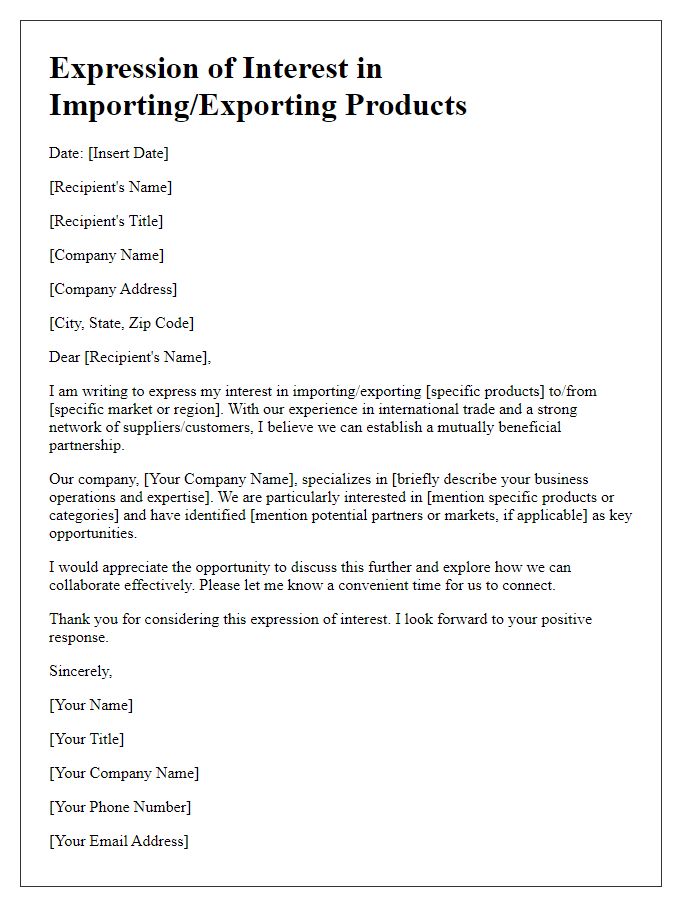
Letter template of request for import-export shipping and logistics information
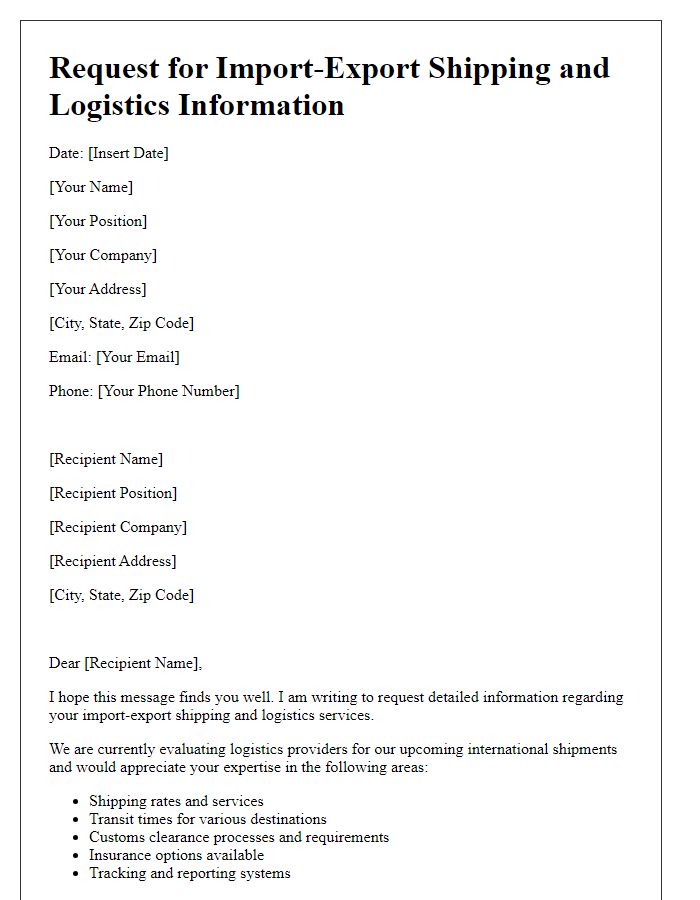
Letter template of notification for changes in import-export regulations
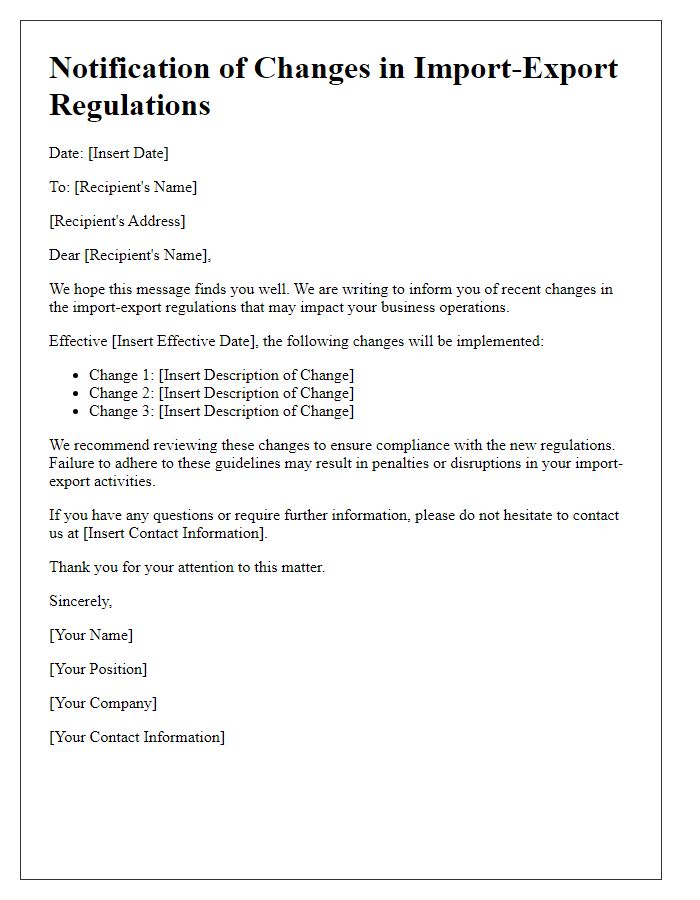
Letter template of partnership proposal for mutual import-export opportunities
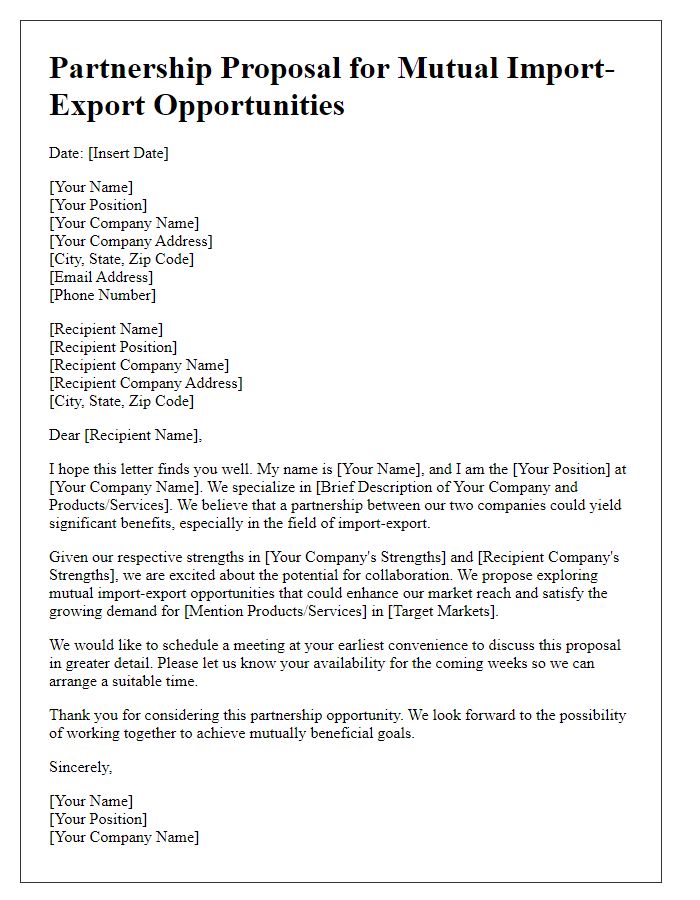

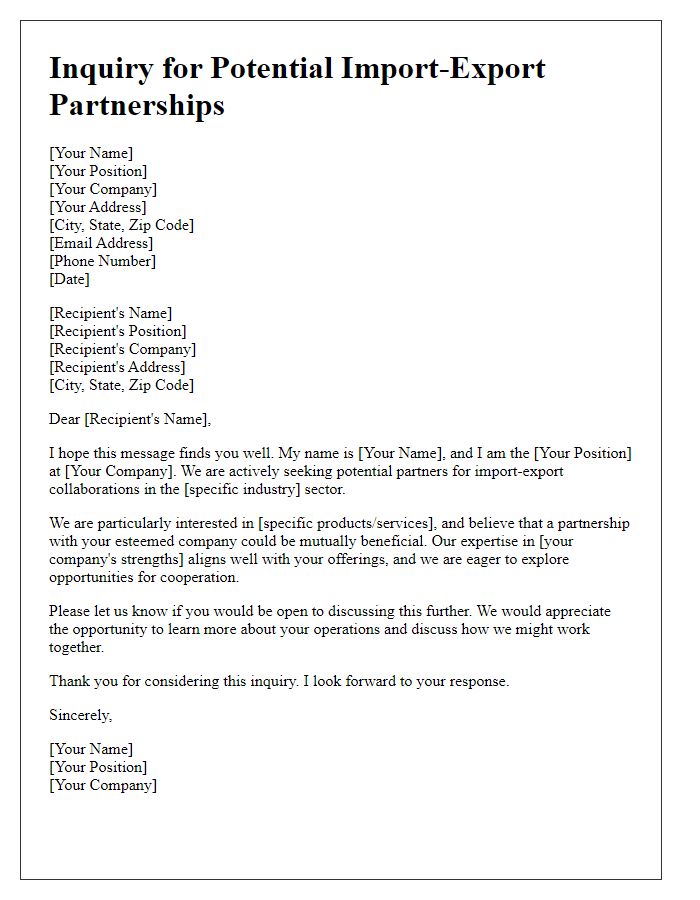
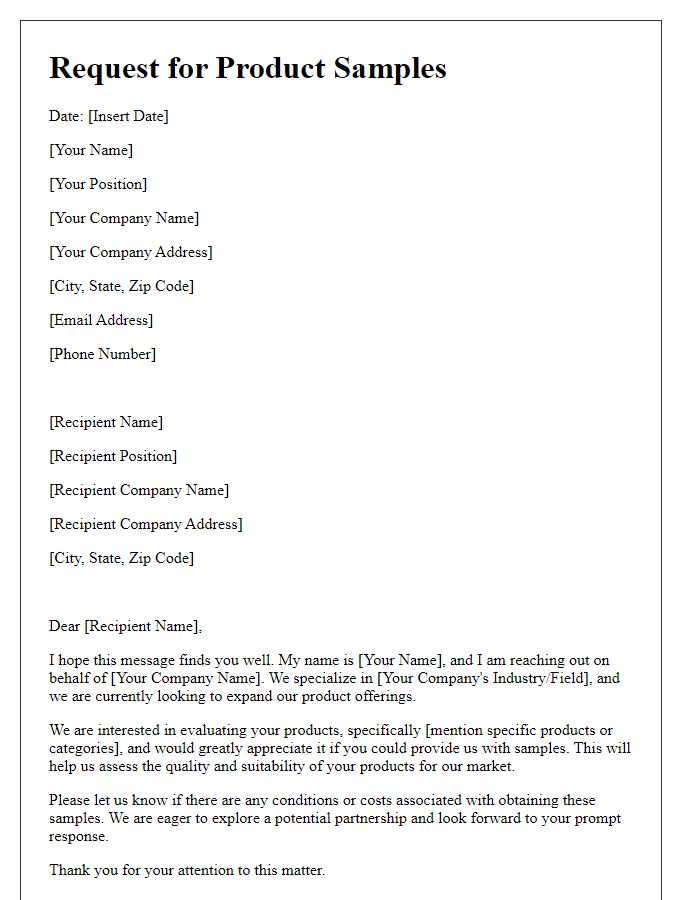
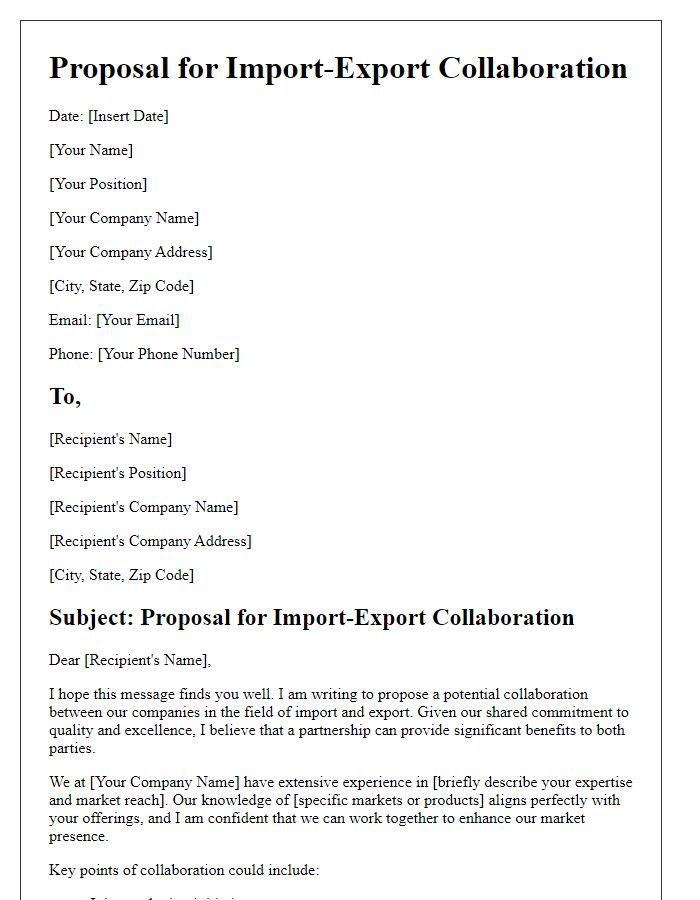
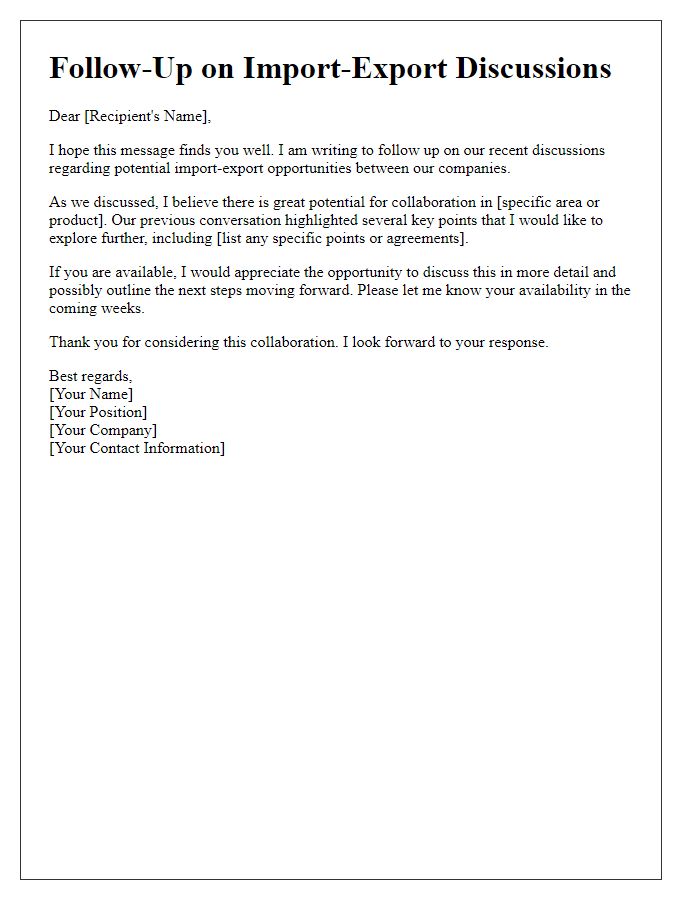
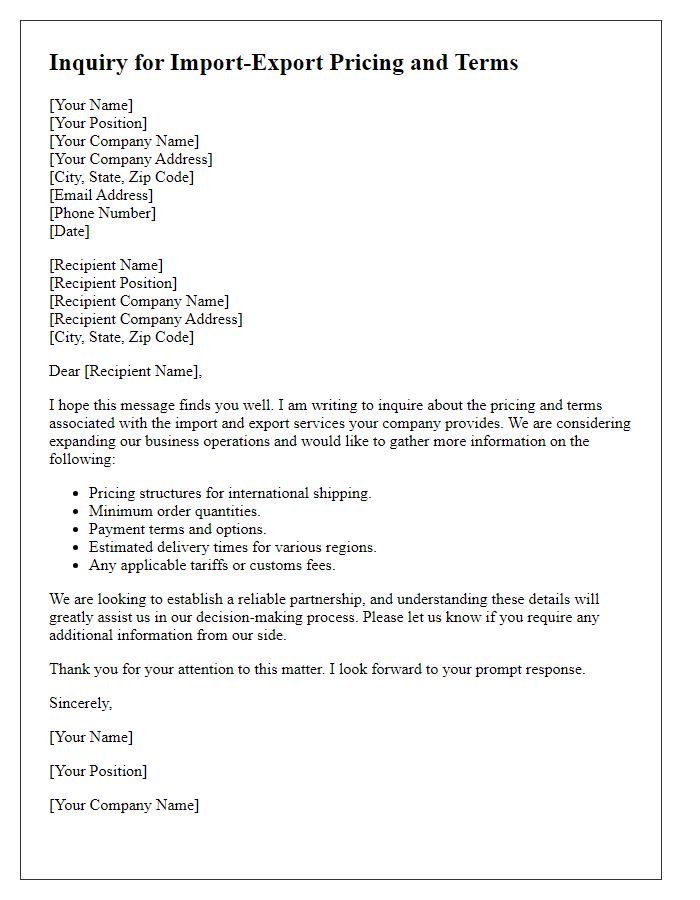
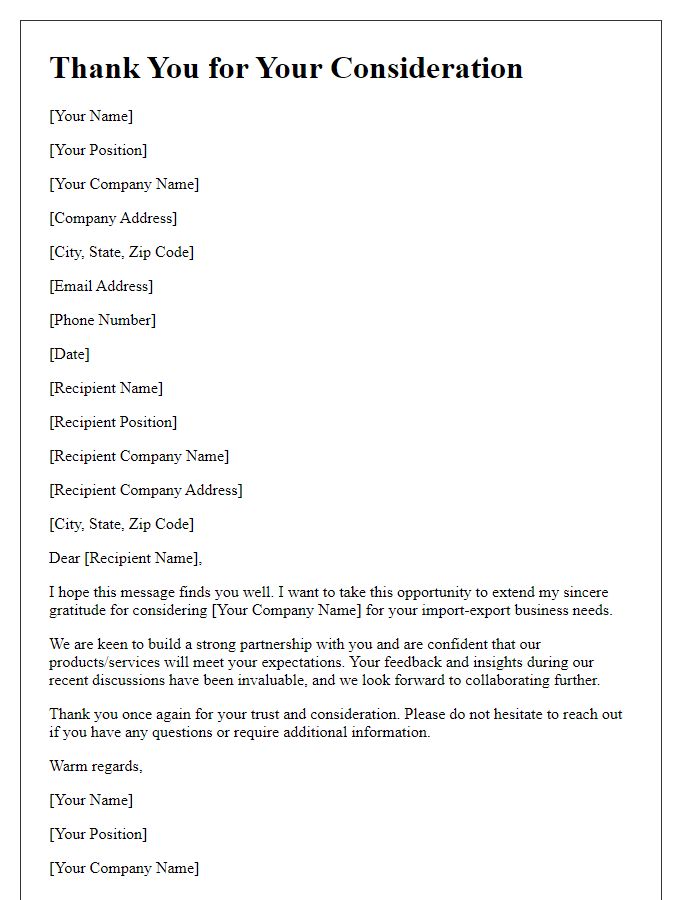


Comments